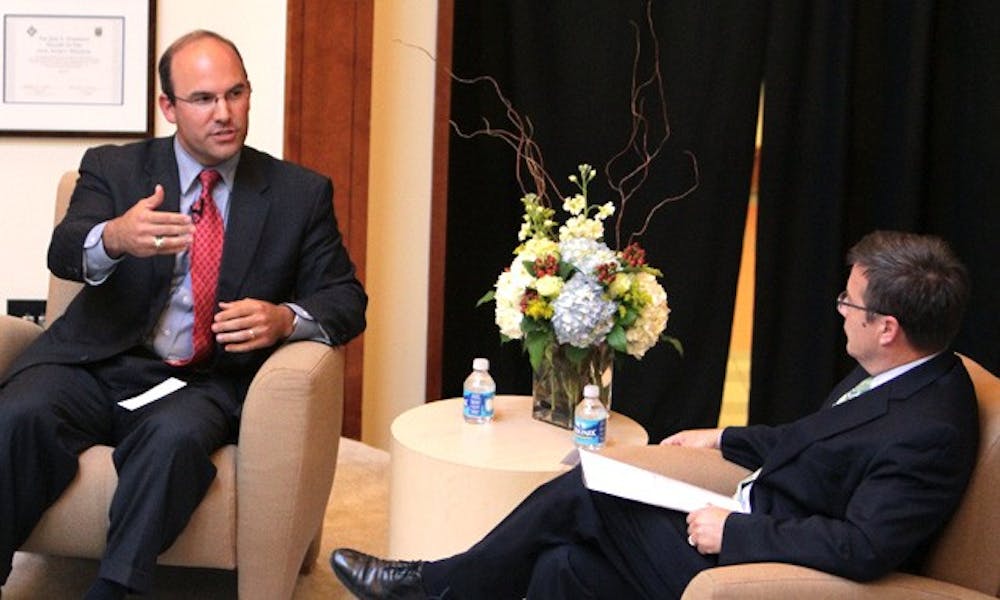As the 10th anniversary of 9/11 approaches, the largest threat to the nation may be a sense of otherness, not a threat of terrorist attacks.
With a speech entitled “9-11: After a Decade and After bin Laden,” Juan Zarate, senior adviser to the Center for Strategic and International Studies and senior national security consultant and analyst for CBS News, addressed a packed auditorium Thursday in the Sanford School of Public Policy about national security concerns in the aftermath of 9/11 and the death of Osama bin Laden.
Focusing on the racial targeting of Muslim Americans in the years following the attacks, Zarate said further discrimination of the community will only assist al Qaeda in its mission to further fracture the American identity.
“Bin Laden tried to create an Islamic identity as he identifies it,” Zarate said. “In some ways, bin Laden wins, al Qaeda wins, if we start to view each other as others, if Muslim Americans are viewed with suspicion, feel targeted and feel not to be American. That’s disastrous.”
Serving as the deputy assistant to the president and deputy national security adviser for combating terrorism from 2005 to 2009, Zarate was responsible for the development and implementation of the U.S. government’s counterterrorism strategy.
“We were looking for someone who would cover the issue in a broad context, to be able to speak of the nitty-gritty,” said Peter Feaver, Alexander F. Hehmeyer professor of political science and co-director of the Duke American Grand Strategy Program, an interdisciplinary program focusing on U.S. foreign policy.
In his speech, presented by the Terry Sanford Distinguished Lecture series, Zarate said despite anxiousness surrounding the anniversary of the attacks, America is not in major danger of further terrorist threats.
“We’re fortunate we haven’t seen two things,” he said. “One, a critical mass of radicalized individuals. The other thing is that we haven’t seen an American citizen engage in a suicide attack. I think… that’s the next threshold. If we would see an American citizen go into a civilian quarter and engage in a mass or a significant suicide attack, that would change the question.”
Admiring Zarate’s unique ability to speak to a broad range of issues and appeal to a wide audience, AGS Program Assistant Jennifer Boyle said Zarate’s insider perspective is invaluable to the Duke community. Boyle said bringing speakers to campus is one of the best ways to spur reflection on past events of significance.
“It is important to take this moment in history and reflect on it,” she said. “Without historical understanding and appreciation of what brought us to where we stand today and to who we are today, we, as a nation, will face difficulty maneuvering the domestic and international environments.”
Freshman Emily Brown said she personally connected to Zarate’s message as she was present during the attempted civilian car bombing in Times Square in 2010. Calling his speech far-reaching as well as eye-opening, Brown said she walked away from the event with a new perspective on the issues.
“Coming from such a decorated figure, the information he provided and his insight into the everyday news we hear was quite enlightening,” she said. “He seemed to comment on everything from domestic to foreign policy of terrorism and protection.”
Leaving the audience with the hopeful message that the U.S. will not only surpass the 10th anniversary of 9/11 without an attack but reach the 20th anniversary as well, Zarate said one day, the nation can be completely safe from the danger of al Qaeda. Until then, he encourages Americans to stand together as a united front.
Get The Chronicle straight to your inbox
Signup for our weekly newsletter. Cancel at any time.

